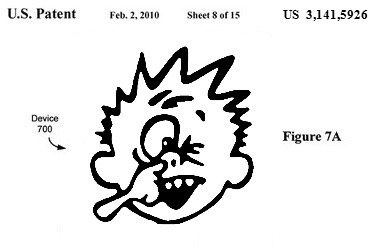Jun 02
 Oracle’s relationship with the open-source community has been rocky at best.
Oracle’s relationship with the open-source community has been rocky at best.
Oracle acquired Sun Microsystems in 2009, which also gave Oracle control of the open-source Java programming language. Which Oracle promptly used to sue Google over its use of Java code in the Android mobile operating system.
“During the integration meetings between Sun and Oracle where we were being grilled about the patent situation between Sun and Google, we could see the Oracle lawyer’s eyes sparkle,” wrote Java co-creator James Gosling.
Continue reading »
May 21
In January 2011, well-known computer hacker George “GeoHot” Hotz discovered and published the keys to the Sony PlayStation 3 game console. GeoHot had previously cracked the iPhone, allowing users to “jailbreak” their phone and run any software they want.
Crack Goes the PS3
Around the same time, another hacker group fail0verflow had also cracked the PS3 and released tools that enabled users to install the Linux operating system on the PS3. The capability to turn the PS3 into a regular Linux computer was a favorite among geeks and hackers. Sony originally provided this feature, but later angered the hacker community when it turned off the feature in 2010.
GeoHot took it to the next level and released the PS3’s “root key.” This key authorizes hackers to run essentially any software on the PS3. And a root key is nearly impossible to change without breaking all existing PS3 software. Hence, GeoHot permanently and publicly cracked the PS3 platform.
Continue reading »
Mar 04
Apple Inc. has filed a federal lawsuit against “the world” for violating its U.S. Patent 3,141,5926 “Removing a Booger by Performing Gestures with a Finger.” Apple is demanding licensing royalties from all world citizens who pick their nose, and a cease & desist order against Kleenex tissues for providing citizens with an alternate method to jailbreak boogers and avoid Apple’s patent.

This new legal action follows a similar lawsuit that Apple filed against rival phone maker HTC for allegedly violating 20 of Apple’s mobile phone patents. The Apple patents include “novel” inventions such as U.S. Patent 7,657,849 for unlocking a phone with a finger swipe.
Continue reading »
Feb 19

The decline of western civilization is now complete. The #1 app for the iPhone is iFart, the digital equivalent of a whoopie cushion. The software sold $10,000 worth on its first day. And since no good deed goes unchallenged, there are over 75 farting apps now available for the iPhone.
And just when you thought that things couldn’t get any stinkier, InfoMedia, which developed iFart Mobile, filed a legal complaint in Colorado District Court against Air-O-Matic, makers of the rival “Pull My Finger” app. Apparently Air-O-Matic sought $50,000 from InfoMedia for using the terminology “pull my finger” in a news release and YouTube promo video. Air-O-Matic also asked Apple to remove iFart from the iPhone App Store, but Apple told the companies to work it out themselves.
So InfoMedia decided to take the matter to court, claiming that the term “pull my finger” is common English slang and a “descriptive phrase” and therefore not covered by trademark.
Nov 19
This is scary, folks. If you use Microsoft Visual Studio to create web services, you could be subject to lawsuits for patent infringement. Yes, simply using a software program puts your company and livelihood at legal risk, yet another sign of how terribly flawed is the U.S. software patent system.
Fortunately, Microsoft is coming to save the day. Microsoft filed a lawsuit in U.S. District Court in San Francisco last week to defend users of its Visual Studio development tools. The lawsuit seeks to invalidate several patents that WebXchange is using to sue three large companies: Allstate Insurance, Dell computer and FedEx.
Continue reading »
Aug 08
In a ruling that’s likely to send shock waves throughout the technology industry, the California Supreme Court upheld a 136-year-old state law against non-compete clauses in employment contracts. The ruling says that employers cannot restrict employees from working for a competitor or soliciting former clients once they leave the company.
Continue reading »
 Oracle’s relationship with the open-source community has been rocky at best.
Oracle’s relationship with the open-source community has been rocky at best. 
